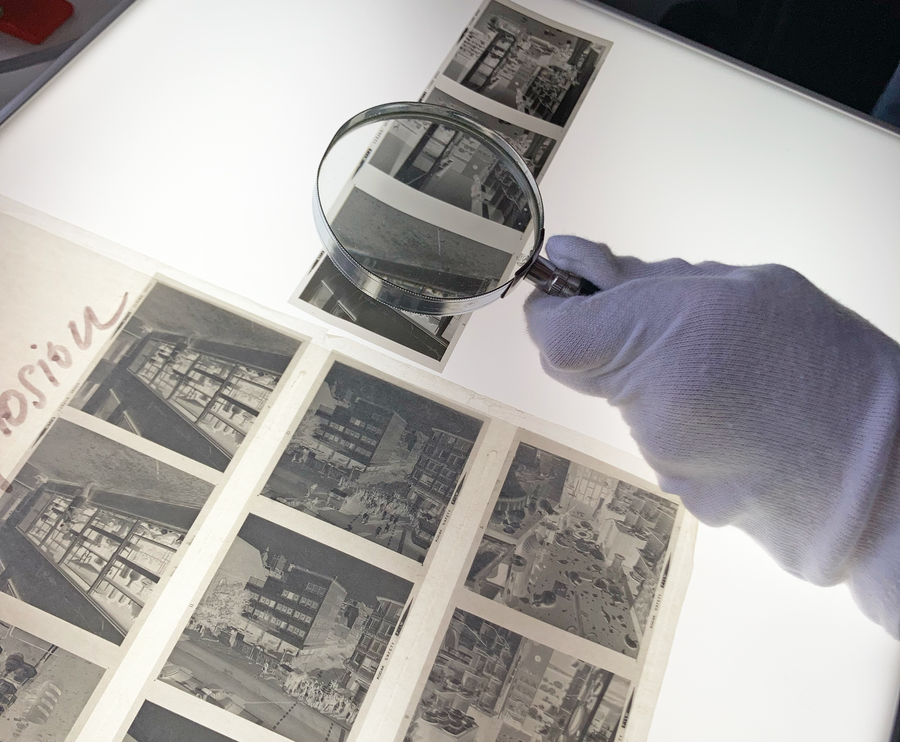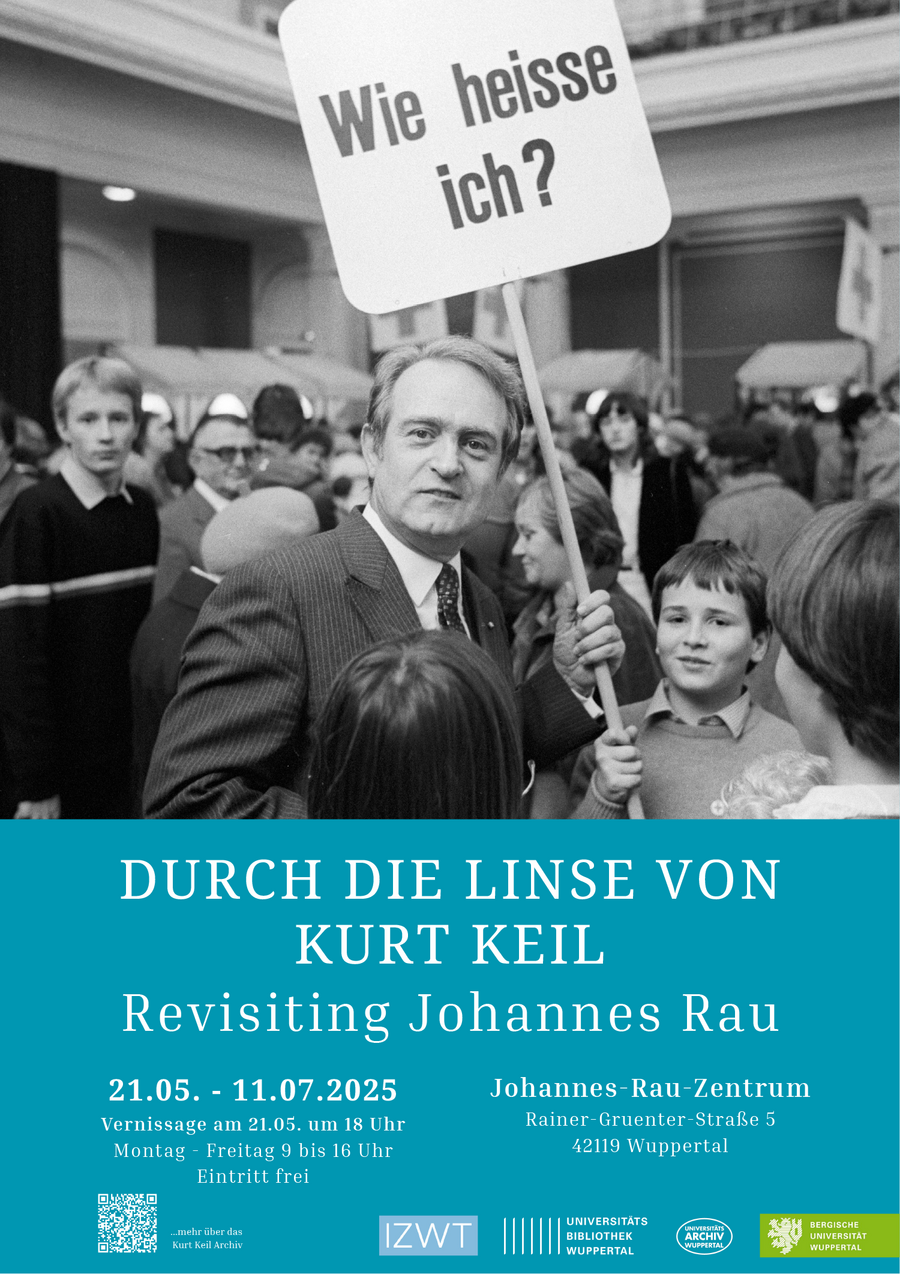Exhibition
Through the lens of Kurt Keil

Students at the University of Wuppertal have been working with the estate of Kurt Keil since the winter semester 2023/24. The collection comprises more than 500,000 negatives as well as countless prints and newspaper cuttings // Photo University Archive
Over a period of almost 50 years, the late press photographer Kurt Keil (1940-2020) photographed events in Wuppertal. The resulting collection now comprises more than 500,000 negatives as well as countless prints and newspaper cuttings. The pictures show both special events and everyday scenes from Wuppertal's city history. In 2021, Keil's estate was transferred to the Wuppertal University Archive.
Students at the University of Wuppertal have been working with this collection since the winter semester 2023/24. In various courses, they learn how to make such extensive material accessible in a practice-oriented way - from initial viewing, cataloguing and archiving to curating exhibitions. The aim is to familiarise students with archive work and specifically with working with and researching photographic material.
The exhibition "Through the Lens of Kurt Keil. Revisiting Johannes Rau" is the first in a series of many. The exhibits have already been shown once before: in 1992, Keil presented some of the pictures he had taken since 1967 at the Sparkasse Wuppertal. The exhibits shown there are now being rearranged and presented from a new perspective - they are being revisited.
The focus of the current exhibition is Johannes Rau (1931-2006). Most people in Wuppertal know Johannes Rau - as Lord Mayor, Minister President, Federal President or because of his religious beliefs as "Brother Johannes". Rau's mark on Wuppertal is still visible today. During his time in office as Science Minister of the state of North Rhine-Westphalia, he laid the foundation stone for the construction of today's University of Wuppertal in 1972. Kurt Keil captured Rau's work in Wuppertal in photographs throughout his career.
The exhibition
"Through the lens of Kurt Keil. Revisiting Johannes Rau" can be seen from 21 May to 11 July at the Johannes Rau Centre on the Freudenberg campus (Rainer-Gruenter-Straße 5, 42119 Wuppertal). Opening hours: Monday to Friday, 9 am to 4 pm. Admission is free.
The exhibition was curated by students Thea Schneider, Jako Plaß, Philipp Roling, Pia Stoffels, Helene Hecker, Berfin Bayin, Jan Emmerich, Christos Rodouniklis and Barbara Brandau under the direction of Dr Carmen Pérez González, lecturer in the history of science and technology.
About Kurt Keil
Born in 1940 in what is now the Czech Republic, Kurt Keil moved to the Ruhr region with his family in 1949. He began his training as a plumber there at the age of 15 and bought his first camera during his apprenticeship. From then on, he devoted himself enthusiastically to photography. From 1963, he initially worked as a freelance photographer for the Ruhr Nachrichten and the (now) Westdeutsche Allgemeine Zeitung. When he was offered a permanent position by the Westdeutsche Zeitung four years later, he accepted and moved to Wuppertal-Vohwinkel with his wife and two daughters.
From then on, he documented daily events in Wuppertal. For example, he accompanied the maiden voyage of the class 72 suspension railway carriages in 1972 and photographed the inauguration of the Uni-Halle in 1987. Taking pictures of people was one of Kurt Keil's particular strengths. Kurt Keil even managed to get the camera-shy Pina Bausch (1940-2009) in front of his lens several times.
Keil had a particular love for sports photography. He followed the development of Wuppertaler SV over the years. Even after his retirement, he pursued his passion, spending a lot of time in various stadiums and documenting sporting events. Kurt Keil died in Wuppertal in 2020. He worked on further books and projects until shortly before his death. After the basement of the Keil family home was flooded during the 2021 floods, his photographic collection ended up in the university archives, where it is currently being rediscovered.

